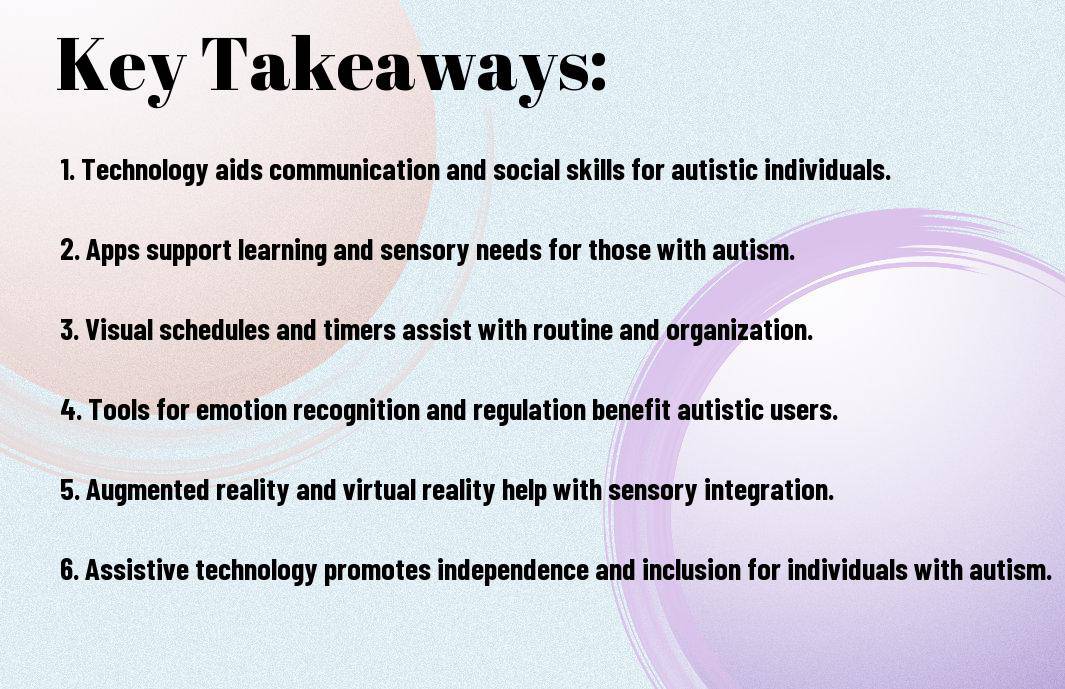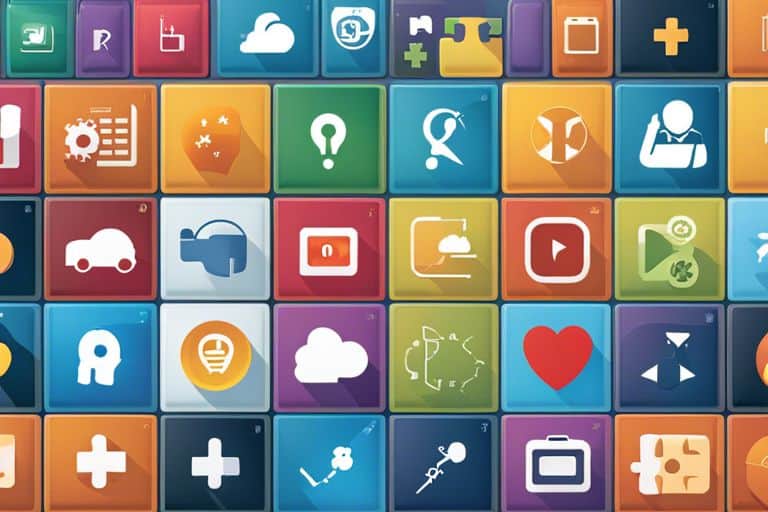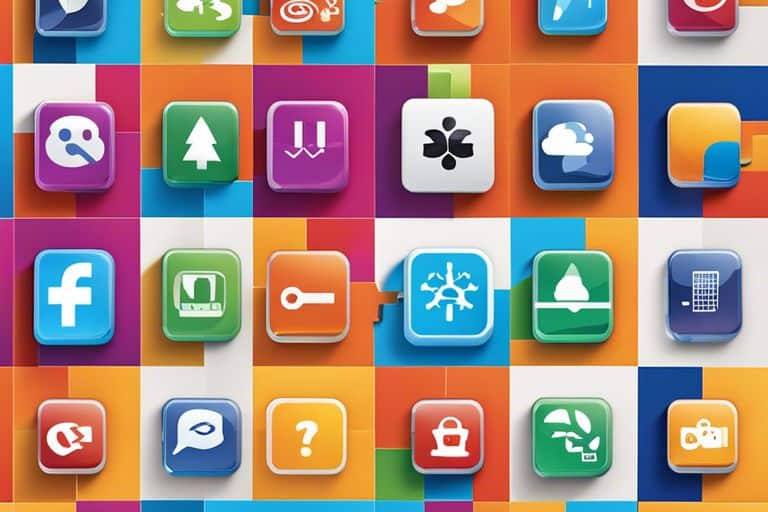Ubiquitous technological advancements have significantly impacted the lives of individuals with autism. The increasing availability of helpful apps and tools has opened up new opportunities for individuals with autism to enhance their communication, social skills, and education. In this blog post, we will explore the positive impact of technology on autism, highlight some helpful apps and tools specifically designed for individuals with autism, and discuss the potential dangers and challenges associated with technology use in this population. Understanding how technology can be harnessed to support individuals with autism is crucial for parents, caregivers, and educators in order to make informed decisions about the use of technology in their daily lives.
Key Takeaways:
- Technology can be a valuable tool for individuals with autism, providing support for communication, learning, and daily activities.
- There are numerous apps and tools available specifically designed to assist individuals with autism, including those focused on social skills, sensory sensitivities, and time management.
- It is important to carefully evaluate the effectiveness and appropriateness of technology-based interventions for each individual with autism, taking into account their unique strengths and challenges.

Communication Enhancement Tools
Speech-Generating Devices
Speech-generating devices are electronic aids that enable individuals with limited or no speech to communicate. These devices can produce spoken language by pressing buttons or touching a screen, allowing individuals with autism to express themselves effectively. Some devices are programmed with a range of vocabulary and phrases to cater to different communication needs, while others can be customised to the specific requirements of the user. Speech-generating devices have revolutionised the way individuals with autism communicate and interact with the world around them, providing a voice where there was none before.
Visual Communication Apps
Visual communication apps utilise pictures, symbols, and text to help individuals with autism understand and convey information. These apps can be customised to create visual schedules, social stories, and communication boards, providing individuals with a visual support system to aid their comprehension and expression. With the capability to personalise and adapt to the user’s needs, visual communication apps have proven to be invaluable tools for individuals with autism, facilitating their communication and social interaction.
Visual communication apps can also be used to promote independence and reduce anxiety by providing visual prompts for daily activities and transitions. These apps have been found to be particularly beneficial for individuals with autism who struggle with verbal communication, as they offer an alternative means of expressing themselves and understanding the world around them. By incorporating visual communication apps into daily life, individuals with autism can enhance their communication skills and improve their overall quality of life.

Educational and Learning Apps
When it comes to educational and learning apps for children with autism, there are a plethora of options available. These apps can be a great tool to help children with autism learn and develop essential skills in a fun and engaging way. To explore some of the best options, check out our blog post on Best Autism Apps for kids on iPad, iPhone and Android.
Interactive Storytelling and Social Skills
Interactive storytelling apps can be incredibly beneficial for children with autism, as they provide a platform for them to engage in social interactions and develop their communication skills. These apps often incorporate visual supports and interactive elements, which can help improve social understanding and emotional recognition in children with autism.
Additionally, social skills apps provide opportunities for children with autism to practice and develop their social skills in a controlled and supportive environment. By using these apps, children can learn and understand social cues, appropriate behaviours, and how to navigate social situations, which can be challenging for individuals with autism.
Customizable Learning Games
Customizable learning games are a fantastic way to engage children with autism in educational activities that are tailored to their individual needs and preferences. These games allow for the adjustment of difficulty levels, visual and auditory settings, and personalised learning goals, making them suitable for children with varying abilities and learning styles.
By incorporating elements of gamification, these apps can motivate children with autism to actively participate in learning activities, while also enhancing their cognitive and academic skills. The customisable nature of these games makes them an ideal tool for educators and parents looking to support the educational development of children with autism.
Customizable learning games provide a unique opportunity for children with autism to engage in educational activities that are tailored to their specific learning requirements. By offering customisable features, these apps can accommodate the diverse needs and preferences of children with autism, making the learning experience more accessible and enjoyable. In addition to improving academic skills, these games also promote independence and self-confidence in children with autism, which are essential for their overall development.
Daily Living and Organizational Tools
When it comes to assisting individuals with autism in their daily living activities and staying organised, technology has come a long way. There are a variety of apps and tools available that can help in scheduling, task management, and life skill development.
Scheduling and Task Management Apps
There are several scheduling and task management apps tailored specifically for individuals on the autism spectrum. These apps provide visual support and structured routines to help with time management, reminders, and completing daily tasks. Some apps also offer features such as creating visual schedules and breaking down tasks into smaller, manageable steps.
Life Skill Development Software
Life skill development software is designed to assist individuals with autism in learning and practising essential life skills. These programmes offer interactive learning experiences that cover a range of critical areas, including self-care, communication, and social skills. The software may include reinforcement tools to encourage the individual to practice and master these skills in a supportive and engaging environment.
Life skill development software is especially beneficial for individuals who require structured learning and repetition to grasp and retain essential life skills. The interactive nature of the software can make the learning process more enjoyable and effective, promoting independence and confidence in daily living activities.

Sensory and Behavioral Management
Sensory Stimulation Apps
For individuals with autism, sensory stimulation apps play a crucial role in managing sensory processing issues. These apps are designed to provide visual, auditory, and tactile stimulation to help individuals regulate their sensory experiences. Some of the most popular sensory stimulation apps include calming visual scenes, interactive music and sound experiences, and virtual reality environments. These apps are effective in providing a safe and controlled environment for individuals to explore and engage with various sensory stimuli, ultimately helping them to manage sensory overload and improve their overall well-being.
Behavior Tracking and Analysis Tools
Behaviour tracking and analysis tools are essential for parents, caregivers, and therapists to monitor and understand the behavioural patterns of individuals with autism. These tools provide a systematic way to record and analyse behavioural data, enabling the identification of triggers, patterns, and trends. By utilising behaviour tracking and analysis tools, individuals can gain valuable insights into the behavioural challenges of autism, allowing for targeted interventions and support. Additionally, these tools promote greater awareness and understanding of the individual’s needs, leading to more effective behaviour management strategies.
In addition to tracking and analysing behaviours, some advanced tools also offer features such as data visualisation, trend prediction, and customizable reports, empowering users with comprehensive and actionable information to make informed decisions.
Technology and Autism – Helpful Apps and Tools
In conclusion, the use of technology in the form of apps and tools has proven to be immensely helpful for individuals with autism. These resources not only aid in communication, social skills and behaviour management, but also provide a platform for learning and development. With the help of these helpful apps and tools, individuals with autism can enhance their independence and improve their quality of life. It is important for caregivers and educators to keep themselves informed about the latest technological advancements and to utilise them effectively. By integrating technology into their daily routines, individuals with autism can overcome various challenges and thrive in their personal and professional lives.
FAQ
Q: What are some helpful apps and tools for individuals with autism?
A: There are several apps and tools specifically designed to support individuals with autism, including communication apps, visual schedulers, and sensory regulation tools.
Q: How can technology benefit individuals with autism?
A: Technology can benefit individuals with autism by providing them with tools for communication, social skills development, and sensory regulation. It can also support their learning and education.
Q: Are there any communication apps that can help individuals with autism?
A: Yes, there are communication apps that use visual supports, picture symbols, and voice output to help individuals with autism express themselves and understand others.
Q: What are visual schedulers and how do they benefit individuals with autism?
A: Visual schedulers use pictures and symbols to help individuals with autism understand and follow daily routines and schedules, providing structure and reducing anxiety.
Q: Can technology help with sensory regulation for individuals with autism?
A: Yes, there are apps and tools that provide sensory regulation through visual and auditory stimulation, relaxation exercises, and mindfulness activities to help individuals with autism manage sensory challenges.
Q: How do educational apps support individuals with autism?
A: Educational apps can provide tailored learning experiences for individuals with autism, addressing their specific interests and learning styles while supporting their cognitive and academic development.
Q: Are there any safety tools or tracking devices for individuals with autism?
A: Yes, there are safety tools and tracking devices that use GPS technology to help monitor the whereabouts of individuals with autism and provide a sense of security for caregivers and family members.







